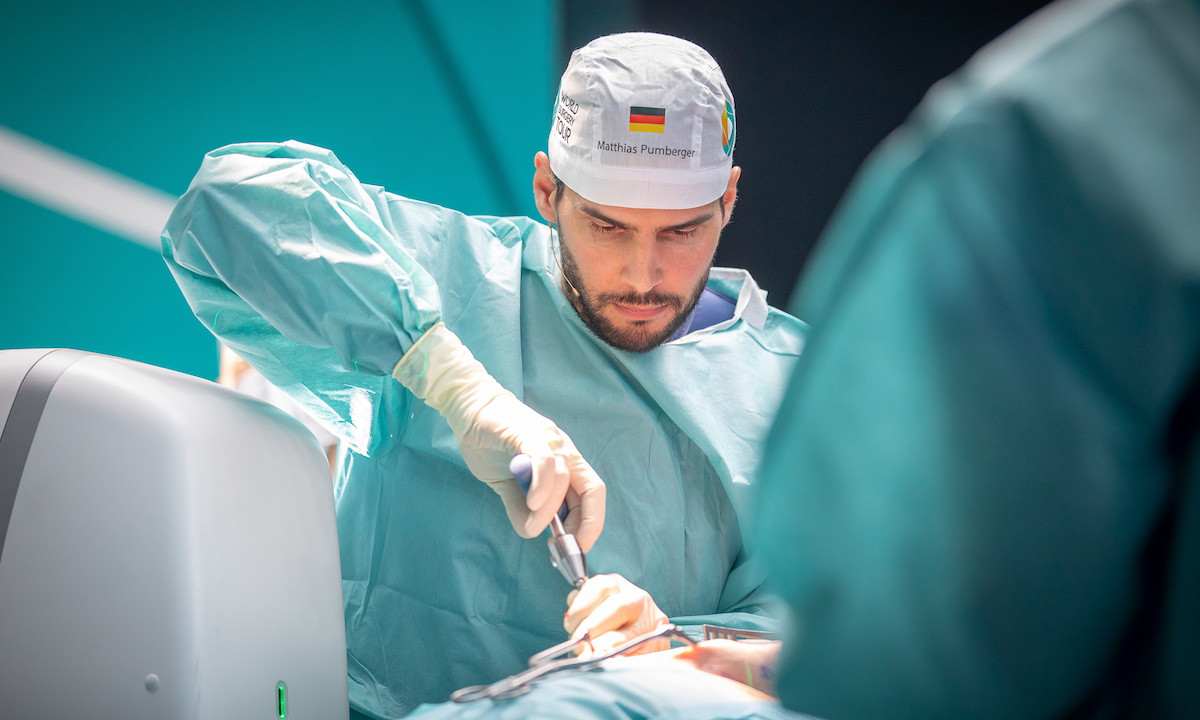<< Back
Chopped: World Surgery Tour a Surgeon Competition Like None Other

December 21, 2021
Knife skills. Precision. Presentation.
It’s not a Food Network show, but the World Surgery Tour that recently attracted tens of thousands of virtual viewers from around the globe in an exhibition of procedures and techniques in specialized surgery. At its core, the surgical showcase attracts surgeons who are masters in their technique and picks their brains as they perform surgery.
Dr. Michael Miranda of the Bone & Joint Institute at Hartford Hospital recently participated in this innovative program, serving as a moderator during a 72-hour surgical marathon.
Here’s the concept: Over three days, orthopedic surgeons from around the world “compete,” squaring off to treat the same injury but tasked with using different techniques. Teams of three surgeons operate on human cadaver specimens, while a moderator on each team fields questions and offers live commentary on the operations. As the operations are underway, surgeons “step back” and field questions, offering insights during the procedure.
In the end, each operation and technique is judged and evaluated.
Operating rooms were set up in studios outside Boston in Lexington, Mass.; Cologne, Germany; and Brisbane, Australia. One night, Dr. Miranda moderated a pilon fracture repair as the Boston team faced off against surgeons from Switzerland and France. The next night, the operation involved the proximal humerus — this time matching surgeons from Germany, Great Britain and Switzerland.
“My team in Arlington was demonstrating and fixing proximal humerus fractures, or fractures around the shoulder,” said Dr. Miranda. “German surgeons were treating a similar fracture but fixing it in a different way. The exercise highlighted differences in approaches and particular techniques. It was a lot of fun to examine these surgeries in a competitive and friendly way. It was a good-natured competition but with valuable insights. It was intense and I enjoyed it very much.”
Dr. Miranda noted many benefits to a forum like this.
“We’ve talked in classrooms and that’s effective,” he said. “Retention of knowledge online is limited. When we teach surgeons to fix things on plastic bones, the soft tissue isn’t there — it’s a manufactured scenario. This is a way that more people can access specimens and it expands the experience.”
He added that by using the internet, disadvantaged surgeons in other parts of the world can benefit from the knowledge of experts globally, providing opportunities for surgeons who may not have the resources.
The production was presented by Remasys Group. Though it was the inaugural event, the plan is to make it annual.
For more information, visit Worldsurgerytour.com.